Australian adventurer, Lucy Barnard, is attempting to become the first woman to walk the length of the Earth. That's a 30,000 km trek from the southernmost point of South America to the highest point of Alaska. She has braved -17 degrees Celsius and 50 degrees centigrade in the Atacama desert.
So far Lucy has walked 9897 km from Ushuaia Argentina to Pasto Colombia, a lot of this accompanied by her cattle dog, Wombat.
While on a COVID enforced break back in her hometown of Brisbane, she managed to sit down with Dr Johanna Nalua and record an episode of The Worker Learner podcast for the Professional Learning Hub. In the following extract (scroll to the bottom for the full podcast) we learn how Lucy adapts to ever-changing situations, how she deals with false summits and set backs, and what keeps her putting one foot in front of the other - valuable skills no matter how far you walk each day.
******
Johanna: Why did you start walking and where did this vision for the walk come from?
Lucy: I guess the idea was more about having a longing to be out in an open space. I know that sounds really abstract, but a core reason for me to do what I do is that I just love being in free spaces. I love hiking. I love being away from the hustle of day to day life. And another side of what I'm doing is that I'm a communications specialist and a part of me wanted to see if I could sustain myself practicing the theories that I've learnt through my university degree and through the course of my career. So, it was an opportunity to have a test, and see how well I could go. The project itself was more to do with having learnt that no woman had walked the length of the Americas previously, but plenty of men had given it a go. Not all of them have completed it in the full extent, just one man has, and there was something about the challenge and the opportunity to travel that really appealed to me and so I thought 'I'm gonna give it a go'.
Johanna: And you did. That's amazing. I think for a lot of people, having that kind of mission and saying, 'okay I will take as many years as it takes'. It's probably not something most people would do.
Lucy: To be fair, I didn't really start with the commitment of finishing. I really love being involved in projects and giving things a go and because I've done a lot of canyoning and hiking in the past, I really felt that there was a curiosity that I wanted to satisfy, to see just how long I could endure. And in the early stages I went through a period of starving because when you become an adventure that’s something that happens, your body goes into overdrive needing food, and then I went through a period of being in pain all the time because equipment breaks and your body's getting used to what you're doing, and that's the point where I really wanted to quit. But then it becomes your lifestyle. In fact, coming home for this break has been a really good lesson for me in learning how to re-assimilate. I've always been conscious that there is an end, because the first man to walk the length of the earth, George Meegan, he had a really hard time. He felt like he lost his identity at the end of his expedition because he had no other plan. So, I have lots of plans for when I finish and I've been enjoying the time being back, but there's definitely been lessons learnt about what I'll need to consider for when the finish does arrive.
Johanna: And do you remember in the early days when you're going through the pain and starvation, do you remember what helped you to not give up, because I think that's what a lot of people struggle with. What kind of mindset do we need to keep going when things get really tough?
Lucy: For me, it's all about community, so we’re very familiar with the idea that children are raised by communities, and I think the same thing about projects. This is not something that I've done on my own. I have done a lot of the planning. I do all of the logistics, however I have friends that I can confide in who are experts in their field and get advice. There are people who support me on bad days. But, you know, there have been days where I have had to walk for ten days and I've run out of food before getting to town, and then something's broken and I've had a boil on the back of my foot so every step hurts and then I've had my water poisoned and have had chronic illness overnight, and I've just managed to limp into town at the end of my tether. But there always someone at town ready to pick me up and tell me that I can keep going. And this is the amazing thing about the culture of Chile and Argentina, they’re dreamers and they love projects, and I can distinctly remember streams of people saying ‘you'll be the first, you're gonna do it’ and in my head thinking you don’t know me, I'm quitting when I get to the next town, but then sure enough I get pushed out onto the trail by a family or by some do-gooder who has that belief, and that's how I ended up finishing the southern hemisphere.
Johanna: That’s a really beautiful description, because I read a lot about leadership and management and there’s this type of ‘lonesome hero’ idea, that the people who achieve anything are these extraordinary people who just go it alone, so that’s wonderful to hear that you have that community.
Lucy: I’m really lucky.
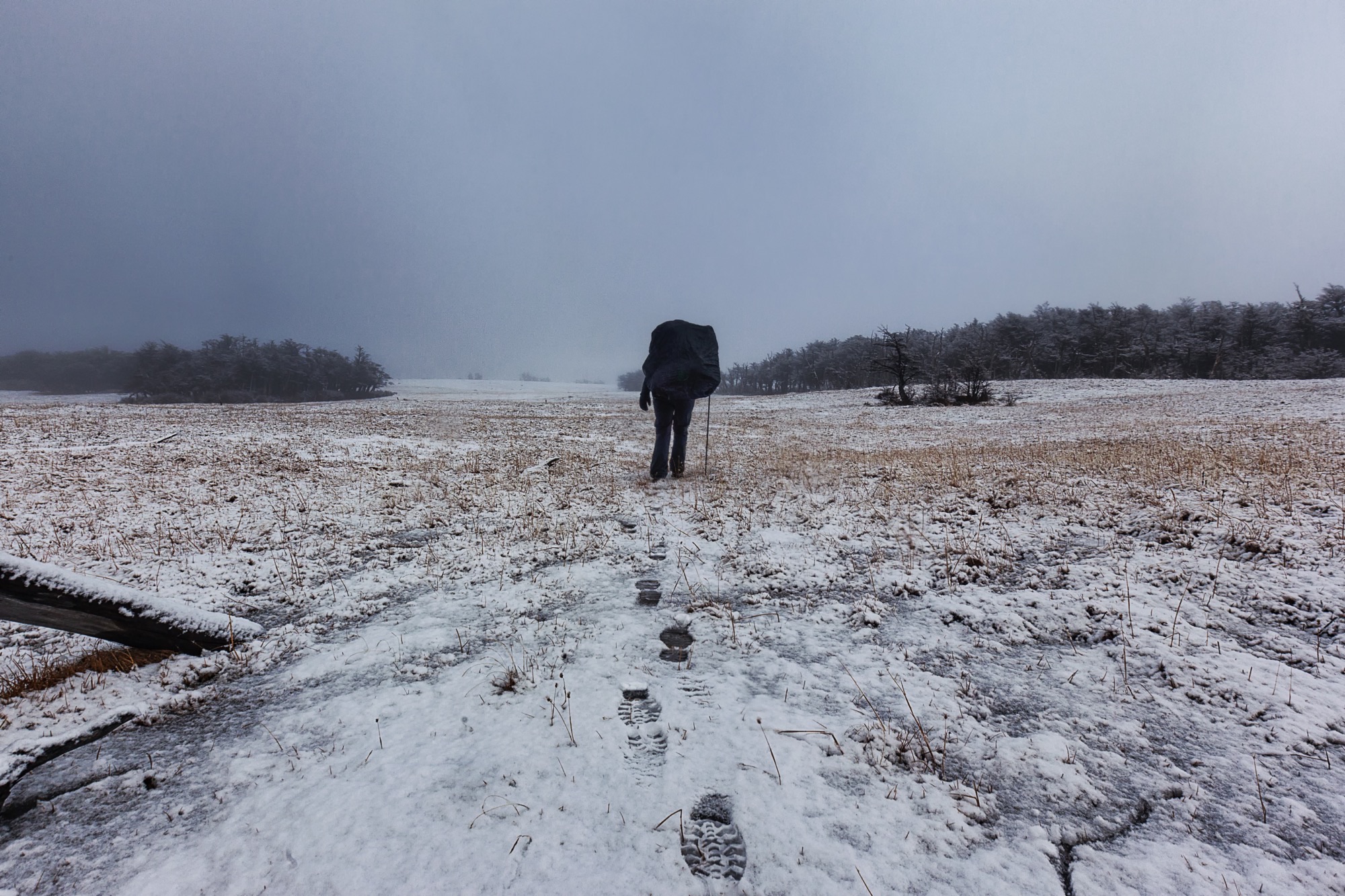
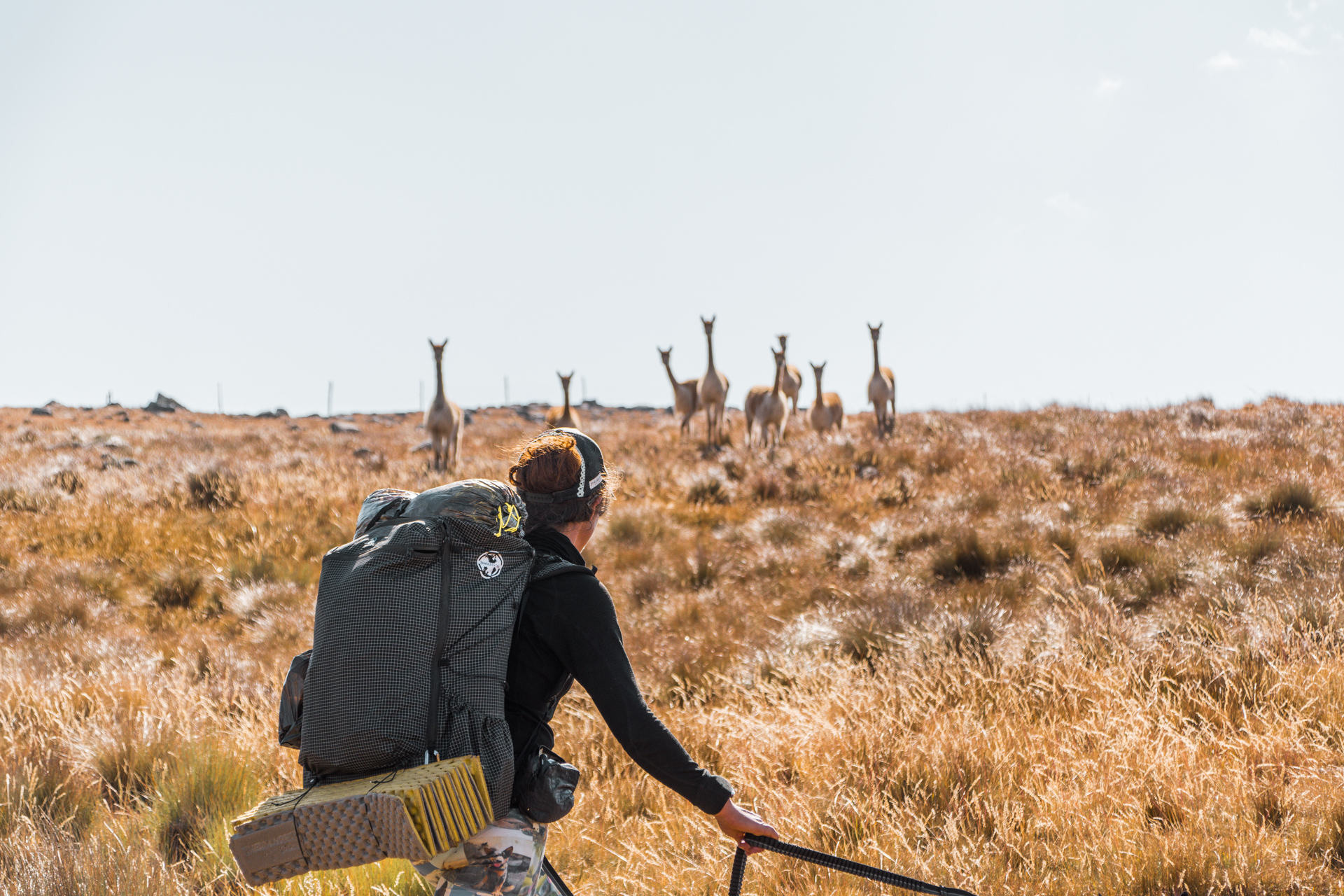
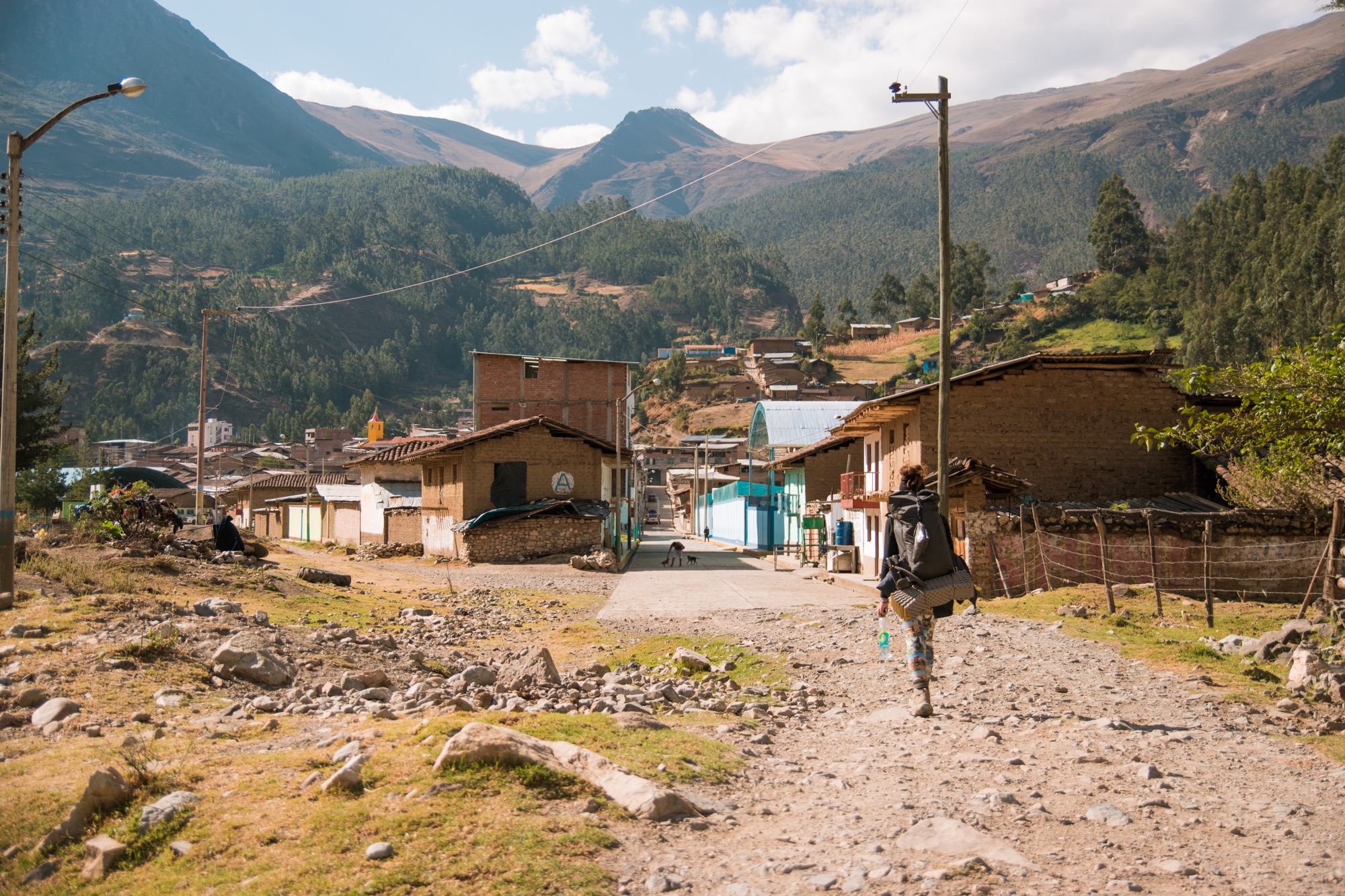
Johanna: I recently read this book about ‘inner chatter’. It’s written by a psychologist, and a lot of the inner chatter we have comes from childhood and it has a massive impact in how we think about ourselves and what we think we’re capable of. In my research I look at climate adaptation, so I see the way we think about particular things, and that impacts on how we think we can adapt. When you're walking what’s the ‘inner chatter’ like for you? Do you talk to yourself?
Lucy: Yes, okay, I do. I talk a lot to myself. I think about milestones and goal setting. I think that's probably the most helpful. So, I will often look at my watch and I'll pick a time when I'll stop or I'll pick a location, which has backfired on me because in arid lands a telegraph pole that you will notice might actually be two days away and not a few hours away. That's literally happened to me. I'm very good at setting goals but when that goal is shifted and it's out of my control I find it really demotivating, so most days I will have a treat in my bag - sounds like I'm dog training - and I won’t allow myself to eat the biscuits until I get to the top of the mountain, and if you've ever walked at altitude where there's half the oxygen available and every step is really laboursome, it's very nice to have bribery for yourself. But other times, I just enjoy the walk so much that if I don't have to navigate, and I’m on a very defined trial, there's very little I have to do except say to myself isn't this great.
Johanna: I watched one of your [videos] where you said, ‘I'm gonna get to the top of the hill’, and then a while later you go ‘well, that wasn't the top’. It kept going and going and going and I think that kind of persistence, it's something that a lot of us think about, even professionally, when we think about our careers and how do we keep this going. For myself, it’s not something I struggle with everyday, but often I go, what do you do when you have set these goals, or these milestones, and you go ‘oh okay I'm not there yet, I thought I was going to be but …’
Lucy: Yeah, so I’ve learnt, because it happens a lot, these pseudo summits, and so now I have contingency goals. For example, it's either this or that depending on what comes first, so I will have a break in two hours unless I reach the summit first, and that way it is more of a controlled milestone.
Listen to the full podcast here
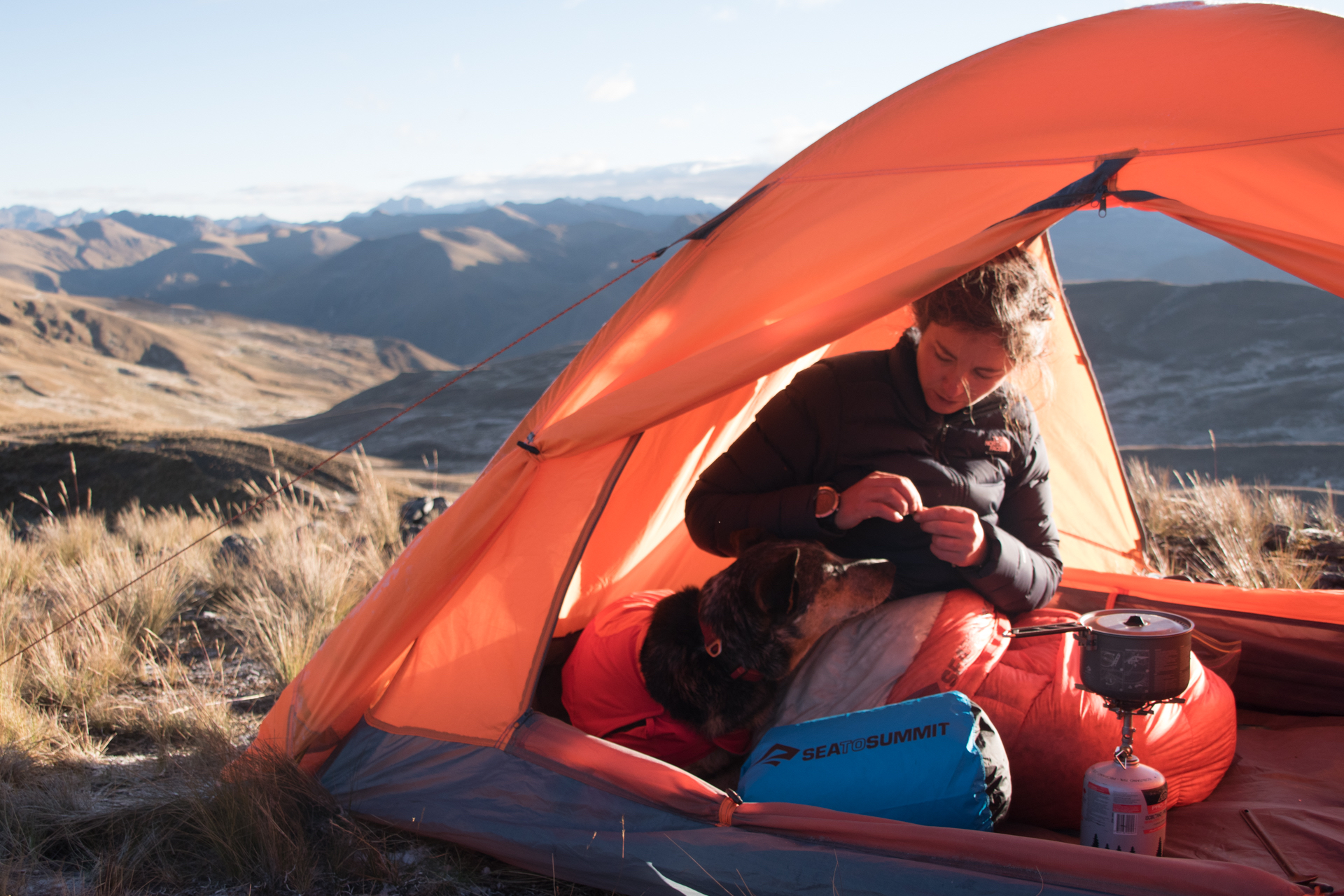
Lucy Barnard
Lucy is a well known expedition lead, writer and public speaker. In 2019 she became the first woman to hike the length of South America (from Argentina to Colombia) and is in pursuit of becoming the first woman to walk the length of the Earth. She has been awarded competitive grants for her work from the Australian Geographic society and The North Face, and has been nominated for an OAM from the Australian Government in recognition of her contribution towards the outdoor industry.
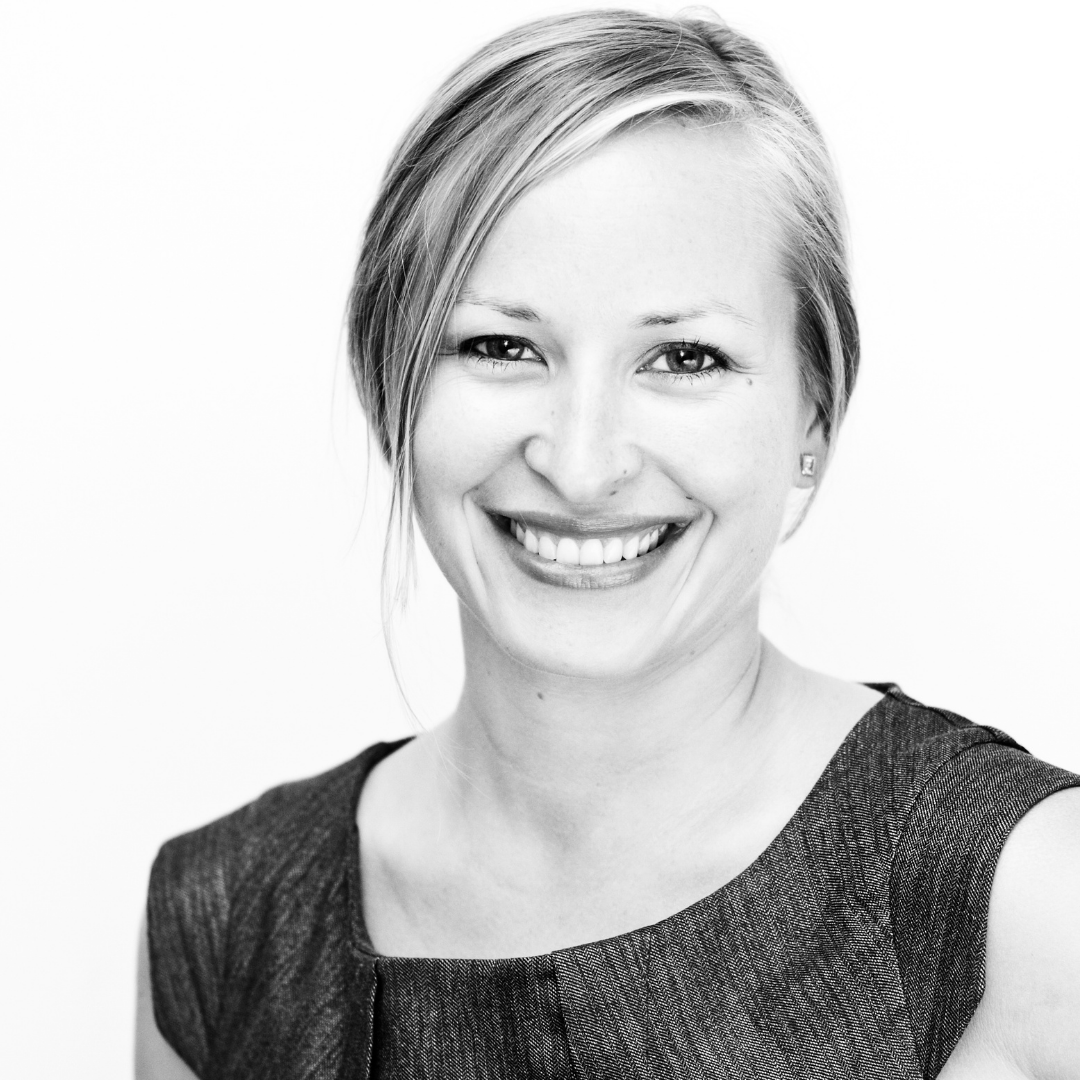
Dr Johanna Nalau
Dr Johanna Nalau is an award-winning adaptation scientist who thrives on finding clues how humans can better see into the future and make robust decisions today to secure a more resilient future. Her Australian Research Council DECRA research focuses on understanding climate adaptation decision heuristics and the role these play in adaptation decision- and policy-making processes. Dr Nalau is Lead Author in the Intergovernmental Panel on Climate Change (IPCC) 6th Assessment report in Working Group II (Chapter 15 Small Islands), Co-chair of the Science Committee of the World Adaptation Science Program, and leads the Adaptation Science Research Theme at Cities Research Institute.
Professional Learning Hub
The above article is part of Griffith University’s Professional Learning Hub’s Thought Leadership series.
The Professional Learning Hub is Griffith University’s platform for professional learning and executive education. Our tailored professional learning focuses on the issues that are important to you and your team. Bringing together the expertise of Griffith University’s academics and research centres, our professional learning is designed to deliver creative solutions for the workplace of tomorrow. Whether you are looking for opportunities for yourself, or your team we have you covered.